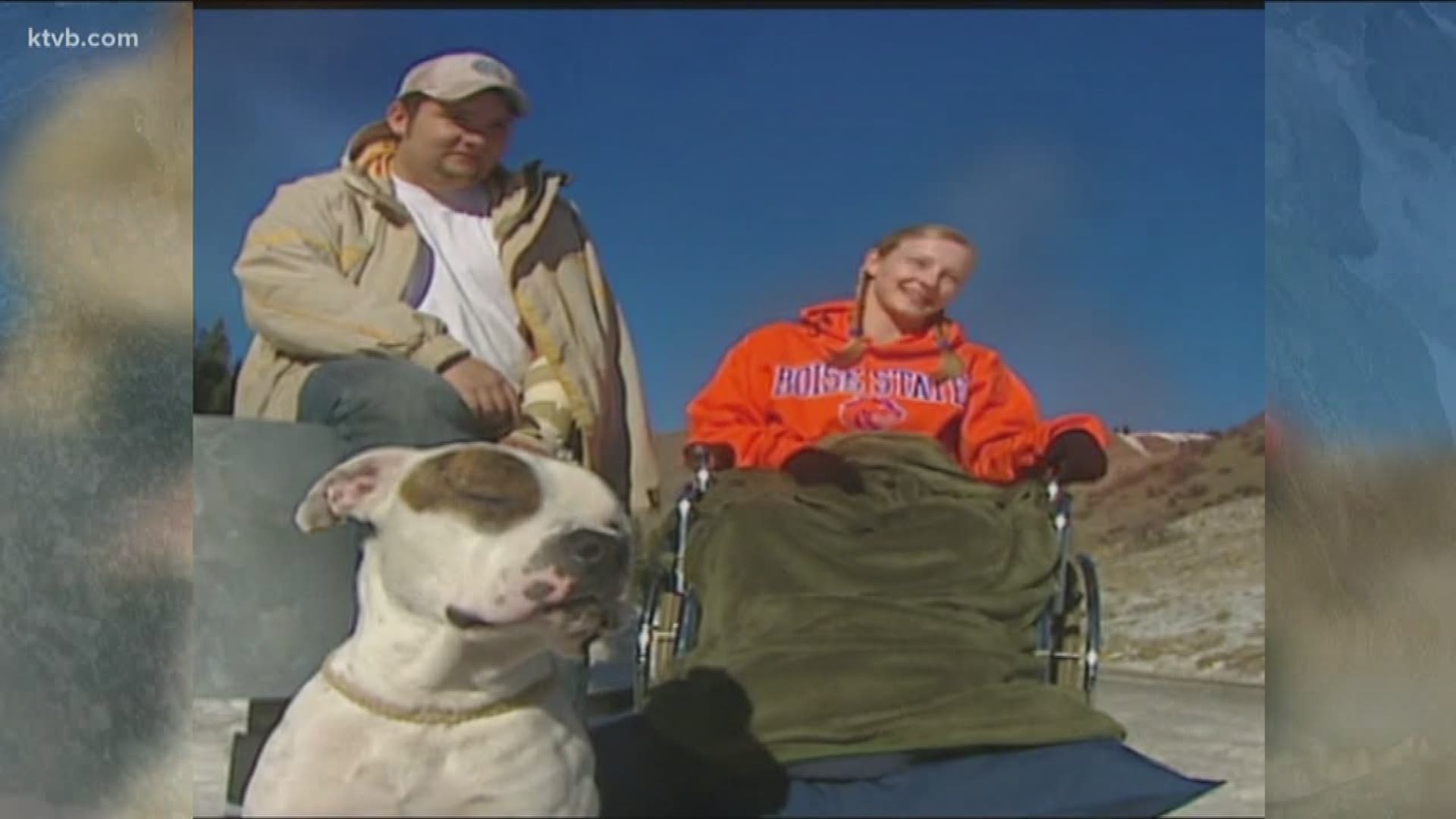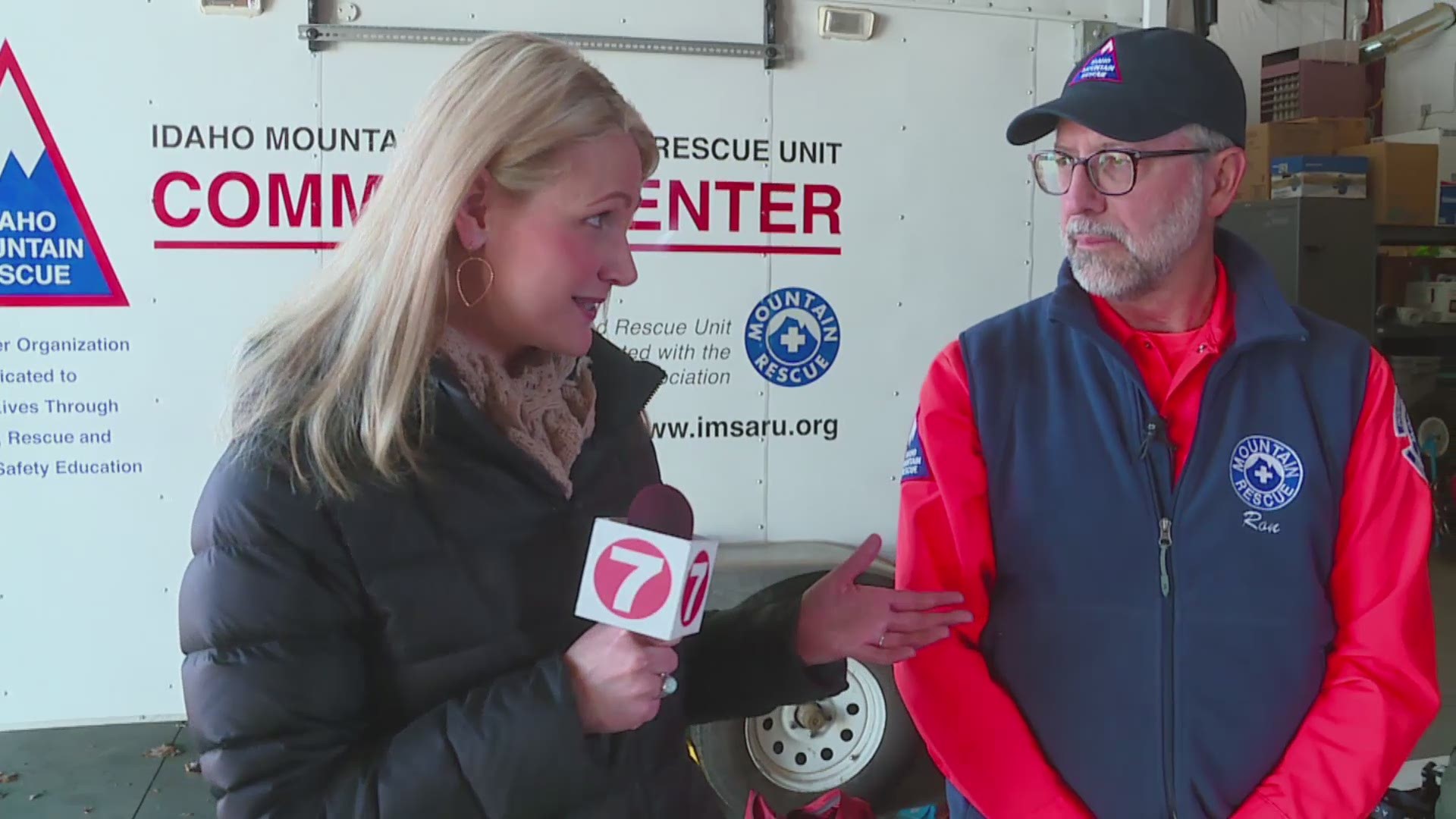BOISE, Idaho — Every winter, we hear amazing stories of survival in Idaho's backcountry.
But one story from 2007 stands out.
A car carrying two teenagers hit a patch of ice and ended up in the frigid Payette River, near Garden Valley.
"I just started swimming for land and got on a piece of ice and got out and lookup and noticed we were on the wrong side of the river," Cody King said afterwards. "And I thought, this ain't good."
King and Jennifer Brooks survived several hours in freezing temperatures by staying dry - and together.
"We had to strip our clothes because of course we had to, they were all soaked," Brooks told KTVB after the ordeal.
The friends, stranded on a tiny ledge of ice, huddled together all night long.
"Cars would go by and we would yell at them, and of course they couldn't hear us," Brooks said. "And then it started getting really cold and snowing and we started freezing."
At this point, frostbite began to set in.
"It was pretty scary," Brooks said.
Boise County Sheriff Jim Kaczmarek has been involved in his fair share of backcountry rescues, and says everyone needs to know how to survive in freezing weather.
"Heat will keep you alive," Kaczmarek said. "Having food and water with you will keep you alive, staying dry will keep you alive."
When someone goes missing in the Boise County wilderness, Kaczmarek's office is often joined by Idaho Mountain Search and Rescue, a volunteer organization based in Boise that specializes in backcountry rescue operations.
If you find yourself lost or stranded in the backcountry during the winter, your survival may well depend on your ability to find shelter from the cold.
"You want to be in an area that provides any shelter from any wind," explained Ron Christensen, Idaho Mountain Search and Rescue's vice president. "You want to insulate yourself from the cold if you can, whether you take pine needles or tree branches, something you could use as bedding of some sort.
"And then you just want to make sure you're not set up in an area that if you're next to water and there's a sudden change in weather and water would rise you wouldn't put yourself in a precarious situation," Christensen added.
WATCH: Ron Christensen with Idaho Mountain Search and Rescue shows us what to pack in your emergency survival kit before heading out into the backcountry.
Next, you'll want to start a fire stay warm.
"What I would do is build a hole down to the hardest ground you can find, protect it from wind, and get that fire started," Kaczmarek said.
In addition to keeping you warm, the fire will put off smoke that could help attract attention.
On the Payette River back in 2007, Jennifer Brooks and Cody King managed to survive through the night. The next morning, they crossed the icy river and ended up in a steep ravine.
"It was the only way we were going to get out and we just wanted to get warm again," Brooks said.
Eventually the pair made it back to the highway where they found help.
Kaczmarek says the teens proved that believing in yourself, and avoiding panic, really are the best tools for survival.
"If you have a survival attitude, coupled with a little skill and preparation you can survive a lot of things," he said.


